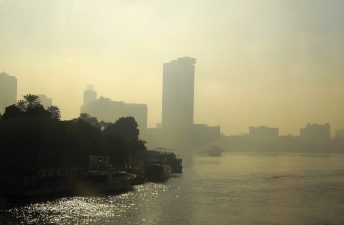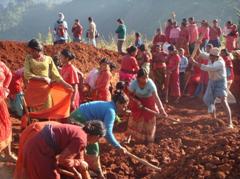 Ramadan observers frustrated over sluggish herb supply might be relieved to keep their meals pesticide-free
Ramadan observers frustrated over sluggish herb supply might be relieved to keep their meals pesticide-free
During Ramadan, families tend to stay home and cook more. Perhaps too much, at times, since earnest observers generate 500 tonnes of organic trash. But what is your favorite cous-cous dish, or other Iftar meal, without a generous helping of fresh parsley, say, or curry leaves? Not only do these herbs give your dish that extra dose of scrumptious oomph, but they also have valuable health benefits. However, if you’re in Abu Dhabi, you might be experiencing an inconvenient slump. The reasons are less apparent than you might think.
Herbal dearth
While it’s true that India, Oman, Jordan, Egypt and Syria – UAE’s main herb suppliers – slow their output during hot, dry summer months, the biggest cause for the dearth of herbs can be attributed to an official policy to protect citizen health.
“Supplies have dwindled further as the UAE subjects herbs to more stringent tests to see if the leaves meet internationally accepted standards for permissible levels of pesticides,” Mohamed al Reyaysa, the director of the communication and community service division at the Abu Dhabi Food Control Authority, told The National’s Suryatapa Bhattacharya.
Can’t get no curry
Last year, businesses suffered when it was discovered that India’s curry leaves contained higher than acceptable pesticide levels.
“Lulu Hypermarkets is still recovering…,” according to Zulfikar Kadavath, the purchase manager of fruits and vegetables with Emke Group.
Officials will usually test 1% of the imported herbs; if they are found to be contaminated, they are immediately destroyed, writes Bhattacharya.
Restaurant relief
This causes some disruption among Ramadan observers who struggle to find the herbs they are accustomed to, with parsley and curry leaves being the most difficult to find. But restaurants, who usually decrease their hours during Ramadan, have not yet been affected.
Nonetheless, at present, demand far exceeds supply.
“Prices are being maintained in the markets, but in the wholesale sector the cost of curry leaves jumped to Dh40 a kilo from Dh8 a kilo last year, because of reduced supply and increased demand,” Mr Kadavath said.
While this inconvenience may be initially difficult, pesticide testing is an important step towards ensuring that everyone along the herbal supply chain is taking consumer health seriously.
:: image via Shawn Allen and story via The National
More food and health news:




Comments are closed.